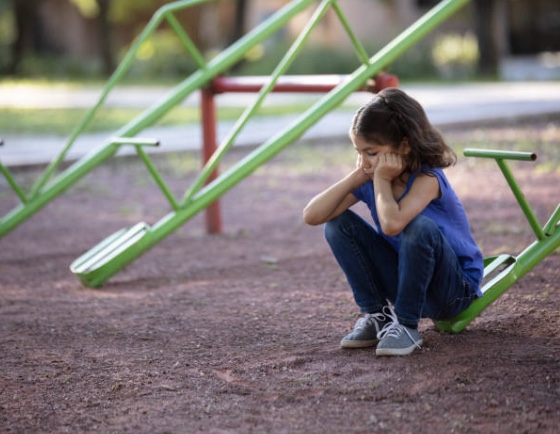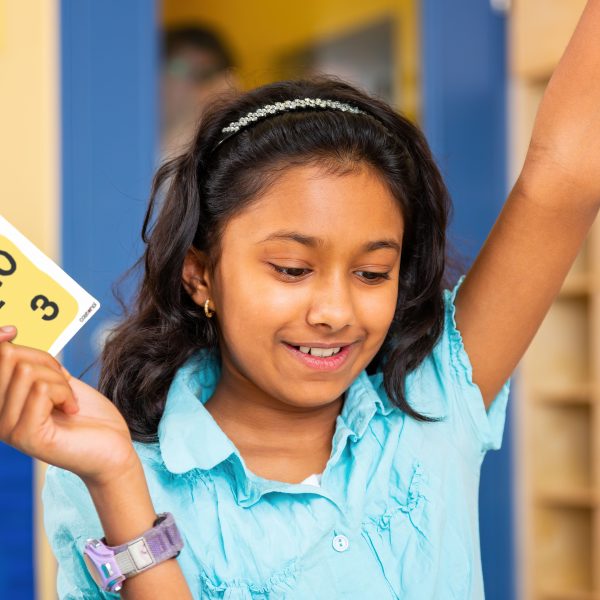Discovering that your child has few or no friends can be a major source of concern for any parent. You may wonder if it’s normal, if you should step in, or how to support your child in building positive connections. Friendship plays a key role in a child’s social and emotional development: it teaches them how to share, cooperate, handle conflicts, and feel supported. But what can you do when you notice your child often stays alone, isn’t invited to birthday parties, or seems to have trouble finding their place in the group?
In this article, we’ll explore possible reasons behind this situation, signs to look out for, and—most importantly—practical ways to help your child form friendships and thrive in their social life.
Why Your Child Might Not Have Friends – And What It Really Means
Chosen solitude vs. unwanted isolation
Some children enjoy spending time alone. It might be to read, play, or simply recharge. When this is the case, solitude is a choice and can actually support their well-being. On the other hand, unwanted isolation happens when a child wants friends but feels left out, rejected, or unable to connect. This can bring feelings of sadness, low self-esteem, or unfairness.
Pay attention to whether your child seems happy or distressed during these alone times. This can help you understand if it’s a healthy need for personal space or a sign of social isolation.
How age and development matter
A child having few friends isn’t automatically a problem. Age and developmental stage play a huge role in how kids experience social relationships.
For example, toddlers can be perfectly content playing alone. At this stage, parallel play is normal—children play side by side without necessarily interacting. As kids grow, their social needs change.
According to Aider son enfant website, before age 10, friendships are mostly about play and following rules rather than deep personal bonds. A child who is very active or struggles with game rules may find it harder to make friends during this period.
Around ages 10–11, friendships start to shift: conversations, personality, and shared interests take center stage. This can be tricky for shyer children or those who feel less mature than their peers.
An introverted child or one still learning social skills might seem isolated, but that doesn’t mean they’re unhappy. By understanding your child’s developmental stage, you can set realistic expectations, offer gentle encouragement, and create opportunities for connection without adding unnecessary pressure.
The Impact on Self-Esteem
At school, friendships quickly become a mirror in which children learn to define themselves. Being chosen to play, being invited to a party, or simply having someone to laugh with at recess. These small moments make a big difference in how a child sees themselves. When a child feels rejected or often left out, they may start to believe they’re “not funny enough,” “not nice enough,” or “not interesting enough,” which can hurt their self-esteem.
That’s why it’s so important for parents to reinforce self-confidence at home. Remind your child of their strengths, celebrate their accomplishments, and give them opportunities to shine in other settings whether at home, in an activity they enjoy, or with family.
The more a child feels recognized and valued across different areas of their life, the stronger their self-confidence will grow. This foundation helps them face challenges more resiliently and open up to others more easily.
Family and Environmental Factors
A child’s difficulties with friendships don’t always stem from them alone. Family and social environments play a big role too.
For example, a move, a separation, the arrival of a new sibling, or a tense family atmosphere can influence how a child interacts with others. Some children may become more reserved or cautious, while others may seek extra attention and struggle to find their place in a group.
Outside factors matter as well. A highly competitive classroom, a school environment that is intolerant of differences, or a neighborhood with few children the same age can all limit opportunities to form friendships.
How to Support a Child Who Doesn’t Have Friends
IAccording to Naître et Grandir, if you notice that your child enjoys spending time alone, tells you they’re happy that way, and seems content, there’s no need to intervene. You can, however, check in occasionally to make sure they’re still comfortable with their alone time and ensure they also have opportunities to play or interact with other children (at home, in the park, at school, etc.) to help develop their social skills.
On the other hand, if your child seems isolated and unhappy, it’s important to step in with kindness. Start by understanding the situation: is it a personal choice, or the result of a conflict? Is it temporary or ongoing? Knowing the answers can help you provide the right support.
Encouraging Participation in Group Activities
Encouraging your child to take part in group activities can really help them build connections. Whether it’s dance, soccer, swimming, a school sports club, or other extracurricular activities, these experiences give them a chance to meet peers and share common experiences.
The key is to respect your child’s interests and pace. A child who enjoys an activity feels more comfortable and confident. When they feel good in an environment, it’s much easier for them to approach others and make friends.
Learning to Communicate and Listen to Others’ Needs
Your child needs to learn how to communicate and listen to others’ needs in order to develop healthy peer relationships. This isn’t just about talking—it’s also about hearing and understanding how someone else feels. You can support them by showing how to express emotions in simple words and by asking questions that help them reflect on what they’re really feeling.
For example, ask open-ended questions about their day and what they enjoyed. You can also talk through your actions during playtime, like, “I’m going to stack the blocks this way—what do you think?”
Help your child practice introducing themselves, asking questions when a friend tells a story, and maintaining eye contact during conversations. Encourage them to share ideas or offer help, as working together often makes activities more fun and rewarding.
Involving Teachers and Educators
Teachers and educators can be valuable allies when a child struggles to make friends. They observe your child interacting with peers daily and often have insights you might not see at home. By talking with them, you can check if they’ve noticed your child spending a lot of time alone and, depending on the situation, they may suggest helpful strategies.
Teachers or educators can even create opportunities for your child to connect with others, such as inviting them to participate in small group projects or pairing them with kind, supportive classmates.
Avoid Labeling Your Child Negatively
It’s important to be mindful of the words you use when talking about your child, even unintentionally. Calling them “shy” or “lonely” may seem harmless, but hearing it repeatedly can lead them to identify with these labels and believe they cannot change. This can undermine their self-esteem and make it harder for them to feel confident approaching others.
Instead of defining your child by what they are not, focus on their strengths and the efforts they make to connect with others, even small initiatives. By celebrating their progress and providing positive experiences, you help them build a more open self-image and feel capable of developing at their own pace.
Encouraging Social Skills in Everyday Life
You can support social skills through simple, everyday moments. When your child plays with others, observe discreetly to see if they need a little guidance—for example, learning to share, take turns, or manage their emotions.
Then, practice these skills in a fun context, like a family board game, which teaches turn-taking and polite behavior.
Role-playing is also very effective: pretend to meet a new friend, resolve a small conflict, or ask to join a game using puppets or figurines to create different scenarios.
These playful exercises help your child gradually develop patience, listening skills, and confidence—all of which make forming friendships easier.
Keys to Breaking Out of Solitude
Developing Empathy and Emotional Regulation
Helping a child break out of isolation goes hand in hand with empathy and emotional regulation, along with positive communication. This means speaking to them in an encouraging way, even when they face disappointment or conflict. By focusing on solutions rather than blame, you show them that problems can be resolved without hurting others.
For example, instead of saying, “Don’t be angry,” you might say, “I can see that you’re upset—what could we do to fix this?” Exchanges like this teach children to express their needs respectfully and listen to others, which are essential foundations for building strong friendships.

To explore emotional regulation further, check out our article Emotional Management in Childhood, which also includes a free printable PDF to support your child daily.
Managing Anxiety and Shyness
To help your child overcome anxiety or shyness, it’s important to take small, gradual steps. Small-group activities are an excellent starting point because they provide a safe, structured setting while allowing children to practice social interactions without being overwhelmed by a crowd. These more intimate moments give your child the chance to gain confidence, speak up, and get used to sharing games or conversations.
Once your child feels more comfortable, gradually introduce outings in public spaces like parks. These varied environments help them build tolerance for new situations and expand their circle of friends, while still having support nearby.
As mentioned earlier, role-playing is also very helpful for preparing your child for different scenarios. For example, you can pretend to order at a restaurant, greet a new friend, or ask a question to an adult. These games allow your child to practice words, gestures, and appropriate reactions while boosting their confidence for real-life encounters.
Creating a Safe and Supportive Home Environment
Home is the first place where a child learns to feel safe and develop trust in others. A reassuring environment allows them to recharge and approach school or other activities with more confidence. It’s important to foster a family atmosphere where kindness and listening are central.
You can, for example, set up a quiet corner where your child knows they can go to relax, read, or simply have a moment alone. Regular routines—like a bedtime routine, shared reading time, or a moment to talk about their day—also reinforce this sense of stability. These predictable moments give them confidence and help them manage their emotions better.
Don’t hesitate to recognize their efforts, even the smallest ones, when they try to connect with others or express themselves. Feeling supported and acknowledged at home shows your child that it’s okay to try, make mistakes, and try again without fear of judgment.
Providing Opportunities to Play with Peers
To help your child develop social skills and form friendships, regular opportunities to play with other children are invaluable. Hosting playdates at home or organizing park meet-ups allows your child to practice sharing, collaborating, and resolving small conflicts. These play moments, whether spontaneous or planned, are real learning opportunities where they can experiment with communication, compromise, and cooperation.
When your child feels secure in a familiar environment, they are more comfortable opening up and approaching others. You can start by inviting one friend at a time, then gradually expand the circle if your child is ready. These small interactions foster simple yet meaningful connections that help your child build relationships and boost self-confidence.
Considering Professional Support if Needed
If, despite your efforts, your child continues to struggle significantly with forming connections or developing social skills, it may be helpful to consult a healthcare professional, such as a psychologist or social worker specializing in children. Outside support provides a neutral perspective and can offer strategies tailored to your child’s needs.
Seeking psychological support is not a sign of failure. Rather, it’s a positive step to help your child better understand their emotions, gain confidence, and learn to interact with others at their own pace. You can easily find a psychologist through the Ordre des psychologues du Québec website.
Growing Up Surrounded by Attention and Care
In short, helping a child who feels lonely doesn’t mean forcing friendships. It’s about offering opportunities, time, and plenty of listening. Every small gesture, whether a reassuring word, a shared activity, or a planned meeting, can gradually help your child discover the joy of forming connections. By encouraging them without pressure and respecting their pace, you show them that they are worthy of friendship and fully capable of building positive relationships on their own terms.
Frequently Asked Questions
Why does my child like to play alone?
It’s completely normal for some children to enjoy playing alone, and it doesn’t necessarily mean there’s a problem. Some children naturally have a calmer or more introverted temperament and take pleasure in their own ideas and games. Playing alone can also reflect a rich imagination and growing independence, as the child learns to entertain themselves, create, and think on their own.
As long as your child seems happy, occasionally interacts with others (at school, in the park, or with family), and is developing social skills in different settings, there’s no cause for concern.
At what age should I start to be concerned?
There’s no exact age when worry is necessary, as every child develops at their own pace. Parents generally begin paying closer attention around ages 4 or 5, when friendships and group play become more significant. If your child at this age or older, consistently avoids others, appears unhappy or anxious, or shows little interest in interacting, it may be helpful to consult a professional to see if some guidance could be beneficial.
How Can I Encourage Empathy in My Child?
You can encourage empathy by modeling it in everyday life. Talk about the emotions you notice in others (“Look, your friend seems sad—what could we do to help?”) and name your own feelings to help your child recognize them.
Read stories that feature different emotions and discuss how the characters feel. Personally, I recommend the book The Wolf Who Learned to Tame His Emotions by Orianne Lallemand and Éléonore Thuillier.
Encourage your child to share, take turns, and pay attention to what others say. Repeating these small actions helps your child understand others’ feelings and develop the ability to put themselves in someone else’s shoes.
How Can I Help My Child Handle Conflicts with Peers?
To help your child manage conflicts with peers, start by listening calmly to understand what happened, without judging. Show them how to express their emotions using simple words (“I’m upset because…”) instead of actions or shouting.
Encourage your child to listen to the other child and work together to find a solution—such as proposing a compromise or taking a short break to calm down before continuing to play.







